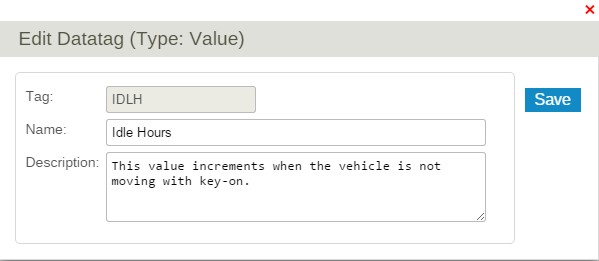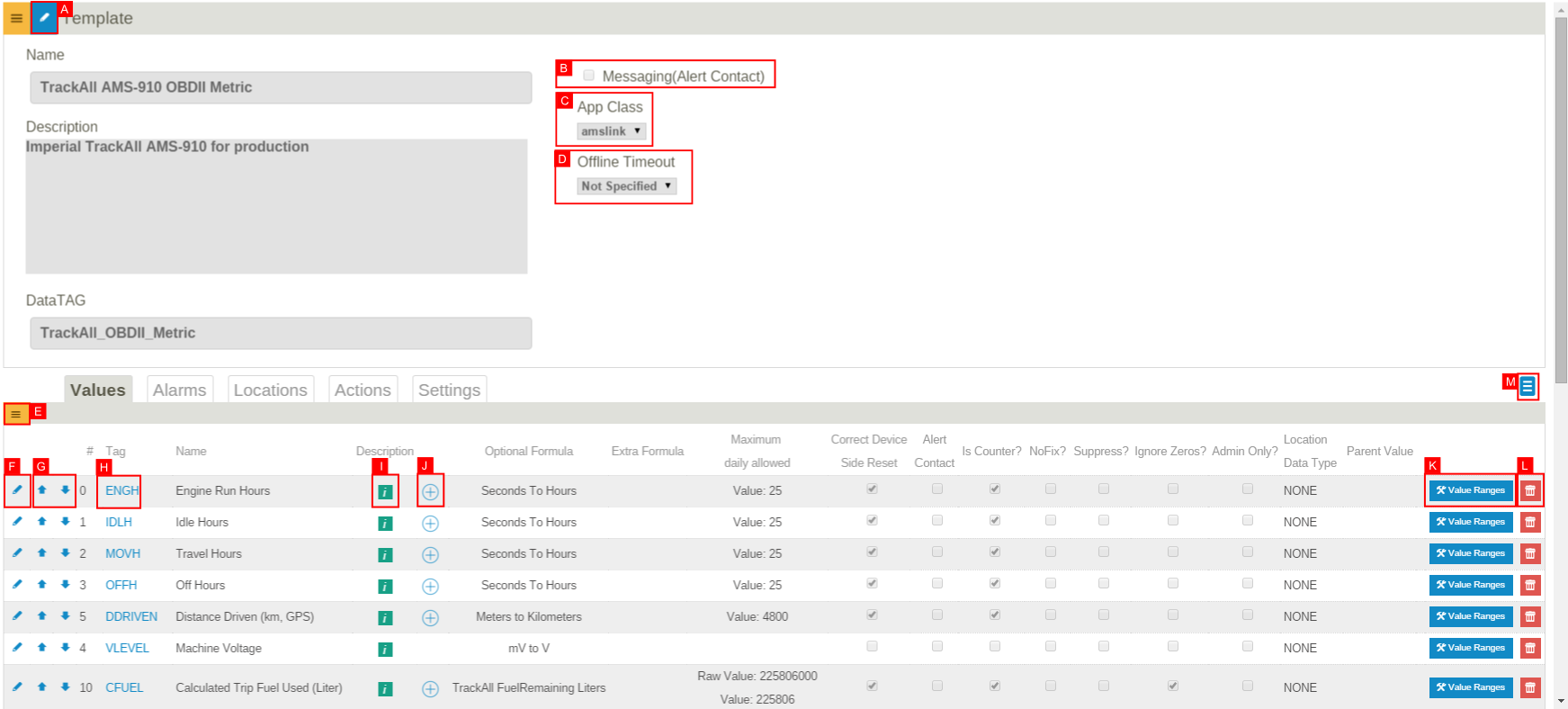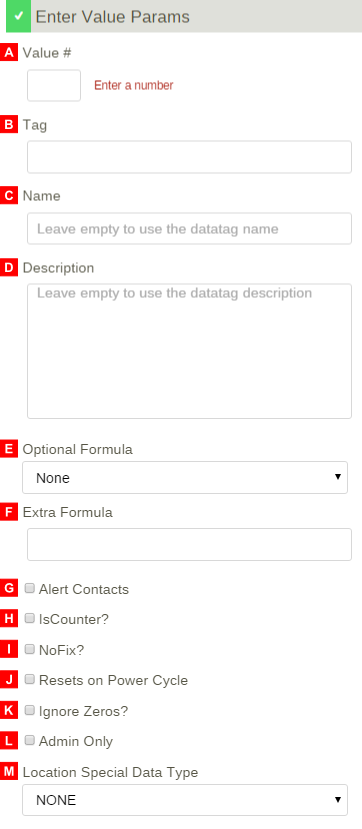Difference between revisions of "Templates"
imported>Dpltech (→Locations) |
imported>Dpltech (→Actions) |
||
| Line 58: | Line 58: | ||
== Actions == | == Actions == | ||
| − | In order to add a | + | In order to add a Action Parameter, click the New button from the expandable menu of the Actions tab. This brings you to the Enter Action Parameters screen. Enter the corresponding number(#) that you wish to reference and provide a name for your new task parameter. Select the 'Alert Contact' check box if you want to alert the contact when the parameter is triggered, provide the new Task parameter with a Datatag and description and you're done! |
== Settings == | == Settings == | ||
Revision as of 13:36, 9 June 2015
__NOTITLE__
Templates
Templates allow you to define which set of parameters the device will listen for and report on. This includes; Values, Alarms, Locations and Actions.
To navigate to the Templates section, under Admin, select Templates.
This will display all available templates that you have created. To configure/edit any of the existing templates, click the Config button next the to template you wish to modify.
- A. Modify Button
- This will allow you to change values such as the templates' name, description, DataTag, etc. Click on the green check mark to save your changes or the red X to cancel.
- B. Messaging(Enable)
- C. Messaging(Alert Contact)
- D. AppClass
- E. Toggle View Button
- Switch the view to Tab view or Stacked view.
- F. Expandable Menu
- Contains New Parameter.
- G. Edit Parameter Icon
- This will allow you to change particular parameters of the device as below.

- Click the green check mark or red X buttons to enable/disable the item, respectively. You can change its name, description, options, etc. You can also delete the parameter by clicking the red trash icon on the far right.
- H. Swap Parameter Position Icon
- Changes the display position of parameters on the equipment management page.
- I. Datatag management
- This will allow you to manage the name and the description of a datatag as below.

Values
In order to add a Value Parameter, click the New button from the expandable menu of the Values tab.This brings you to the Enter Value Params screen as below.
You have a number of configurable options you can set:
- A. Value #
- The corresponding number that you wish to reference.
- B. Name
- Leave empty to use the datatag name.
- C. Datatag
- .
- D. Description
- Leave empty to use the datatag description.
- E. Optional Formula
- Pre-defined formulas to convert the raw data to a particular unit.
- F. Extra Formula
- .
- G. Alert Contact
- If you would like the contact assigned to the device to be notified.
- H. IsCounter
- If you would like the value to increment on each time it gets triggered.
- I. No Fix
- .
- J. Use Formula to enter initial value
- Exactly as said, utilizes a formula for the initial value.
- K. Resets on Power Cycle
- ..
- L. Ignore Zeros
- ..
- M. Admin Only
- ..
- N. Location Special Data Type
- ..
Alarms
In order to add an Alarm Parameter, click the New button from the expandable menu of the Alarms tab. This brings you to the Enter Alarm Parameter screen. Enter the corresponding number(#) that you wish to reference and provide a name for your new alarm parameter. Select the 'Alert Contact' check box if you want to alert the contact when the parameter is triggered, provide the new Value param with a Datatag and description, choose display level and alarm level and you're done!
Locations
In order to add a Location Parameter, click the New button from the expandable menu of the Locations tab. This brings you to the Enter Location Parameters screen. Enter the corresponding number(#) that you wish to reference and provide a name for your new location parameter Select the 'Alert Contact' check box if you want to alert the contact when the parameter is triggered, provide the new Value param with a Datatag and description and you're done!
Actions
In order to add a Action Parameter, click the New button from the expandable menu of the Actions tab. This brings you to the Enter Action Parameters screen. Enter the corresponding number(#) that you wish to reference and provide a name for your new task parameter. Select the 'Alert Contact' check box if you want to alert the contact when the parameter is triggered, provide the new Task parameter with a Datatag and description and you're done!

